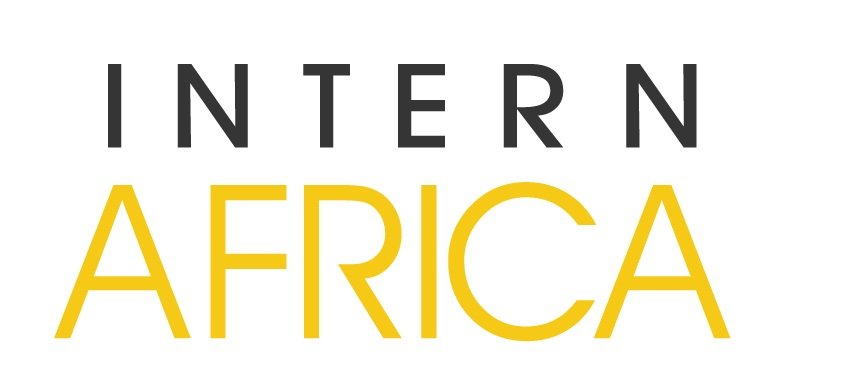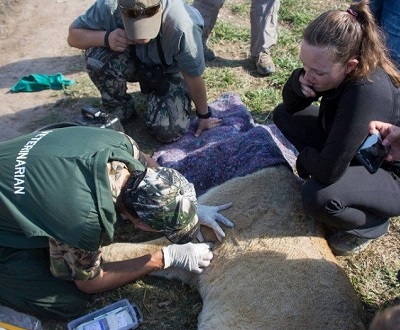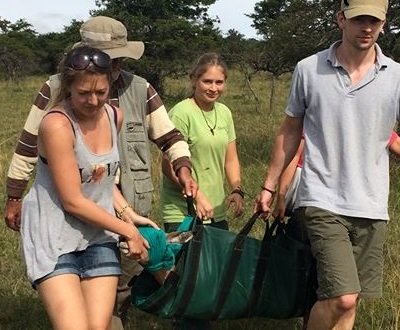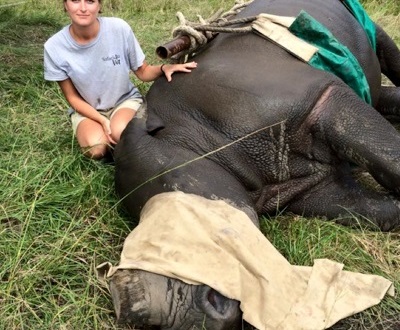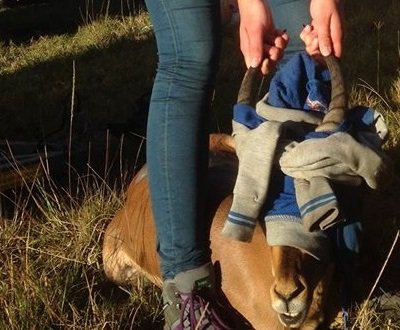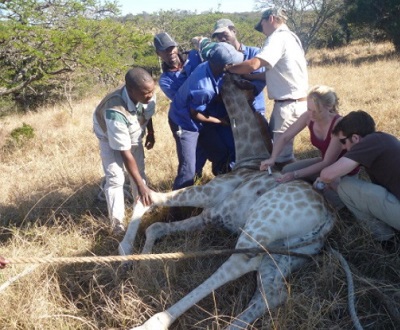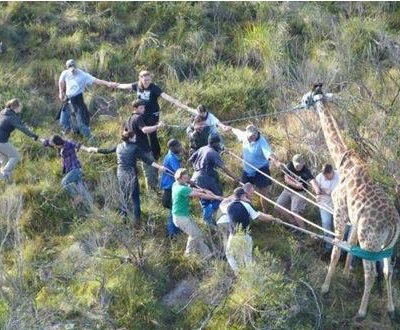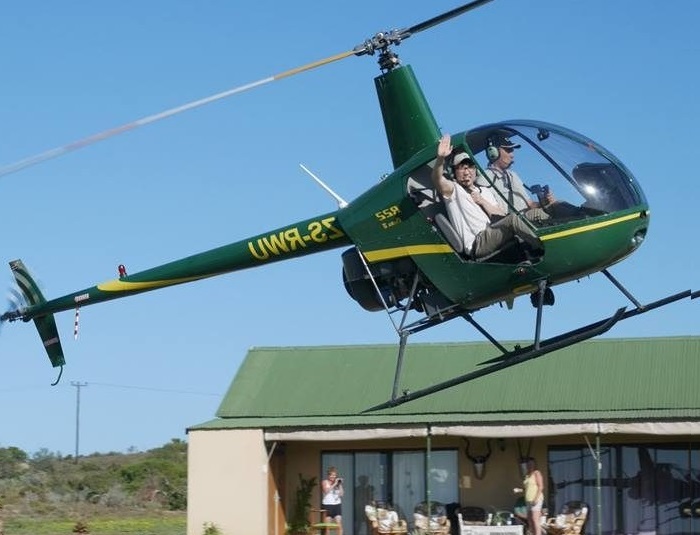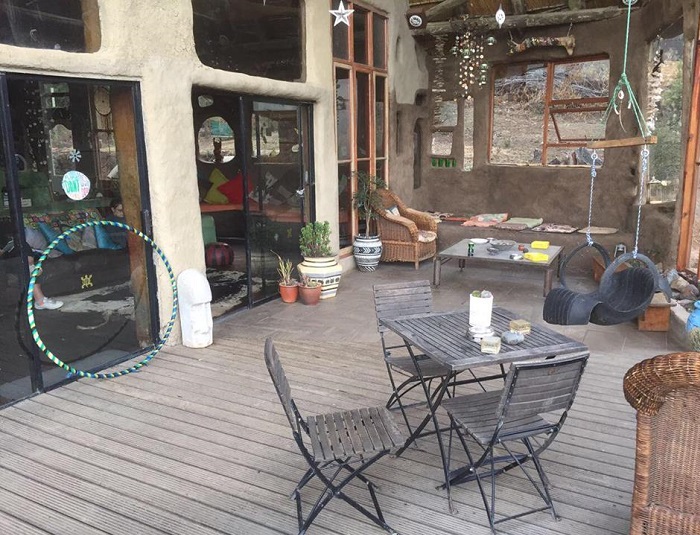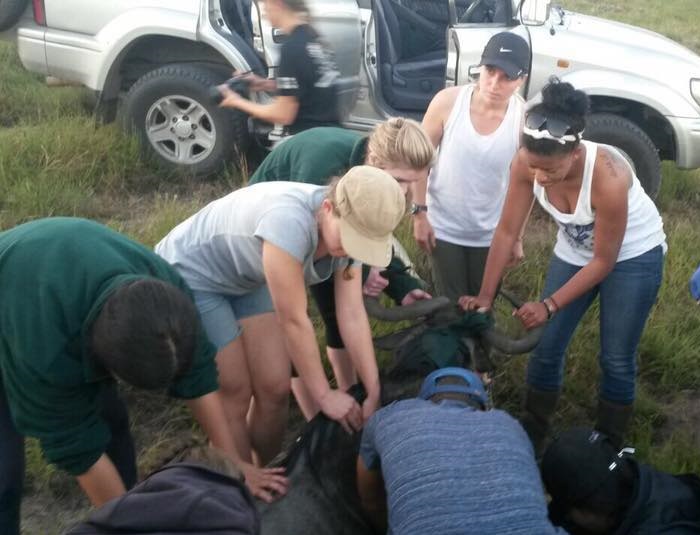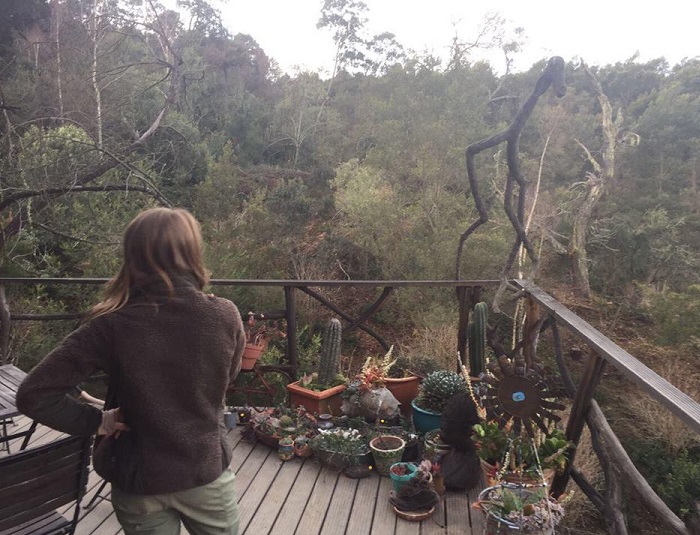If you are interested in veterinary medicine and want to explore a variety of fields: wildlife, large animal, and small animal, this program matches your needs! You will gain valuable hands-on experience with African wildlife, practice advanced veterinary skills on large animal species and administer veterinary care to animals in disadvantaged communities.
This program shadows the life of a mixed-practice veterinarian in South Africa. Wildlife, small animal, and large animal aspects are all covered within a 2-week period, however, activities are planned according to the needs of the community. Therefore, we cannot guarantee which species or activities will be offered at any given time.
Please note that it is a hands-on program, i.e. you will draw up and inject antibiotics and medication. (sedatives, euthanasia, or chemotherapy is only being done by the program vet) Being able to do the injections yourself is one of the major benefits of working in South Africa, as that experience is hard to get in more developed countries.
Participants are from a range of backgrounds and experience so everyone will receive the same training at the start of each task. You will usually perform the same task as other students, but some activities have advanced options for students with more experience.
This program shadows the life of a mixed-practice veterinarian in South Africa. Wildlife, small animal, and large animal aspects are all covered within a 2-week period, however, activities are planned according to the needs of the community. Therefore, we cannot guarantee which species or activities will be offered at any given time.
Please note that it is a hands-on program, i.e. you will draw up and inject antibiotics and medication. (sedatives, euthanasia, or chemotherapy is only being done by the program vet) Being able to do the injections yourself is one of the major benefits of working in South Africa, as that experience is hard to get in more developed countries.
Participants are from a range of backgrounds and experience so everyone will receive the same training at the start of each task. You will usually perform the same task as other students, but some activities have advanced options for students with more experience.
- Age: min.18 - max. 70
- Location: Chintsa
- Requirements: No prior experience is required to participate in this program, however most of our participants are interested in veterinary medicine, conservation biology, animal behavior, or zoology. Since this program is often included on applications for vet schools, jobs, and other internships, most of our participants are students with a pre-vet or biological sciences focus.
- Group size: max 20 participants (divided into groups of 6 - 8 participants)
- Project duration: 1 week - 12 weeks
- Laundry:
- WIFI: The house has wireless internet access
- Linen/towels:Linen provided, towels are not, bring your own towels.
W
Animal Lovers Participants that are interested in veterinary medicine but don’t have much experience use this program to explore the various fields of veterinary medicine, work with exotic species, start recording experience hours, and make a difference in disadvantaged communities. Small animal veterinary work in South Africa
Pre-vet Students Students intending to apply for veterinary school use this program to get more veterinary experience hours, work with a wide range of species, gain some clinical skills, and even get a recommendation letter that outlines their experience. Our participants certainly stand out on vet school applications!
Vet students/Vet techs Participants in vet school or with a vet tech/vet nurse degree use this program to expand their species repertoire, practice clinical skills, and help animals in disadvantaged communities.
Veterinarians Qualified veterinarians may apply to be short-term (2 months) or long-term (5-6 months) Program Vets. There is no fee for this position and room & board is provided.
L
R
D
U
A
Meals are simple and nutritious. Breakfast consists of cereal, fruit, eggs, toast, tea and coffee. A sandwich lunch is packed at the beginning of each day- options include meat & cheese, peanut butter & jelly, or tuna mayo, along with fruit and juice. Dinner consists of a protein, a starch, and at least 1 vegetable. We accommodate most dietary preferences including vegetarians. .
T
AFRICAN WILDLIFE
Wildlife vets encounter a huge range of species in South Africa. Our students handle a variety of exotic species by participating in game capture, volunteering at the zoo, and handling reptiles at the local sanctuary.
At least 2 days within a 2-week period
At least 1 day within a 2-week period.
At least 1 day within a 2-week period
LARGE ANIMALS
Equine and Farm are major areas of veterinary medicine. Our large animal component was designed from the recommendations and prerequisites of AVMA accredited veterinary institutions. Participants work with a variety of animals through our community project and in a large production setting.
Horse Rehabilitation
Tasks may include:
• administering vaccines and antibiotics
• wound treatment
• tick prevention
• observing post-mortem exams
• observing clinical exams
Beef & Dairy Cattle
Tasks may include:
• pregnancy testing
• disbudding and dehorning
• oral dosing
• administering vaccines and antibiotics
• wound treatment
• observing post-mortem exams
• observing clinical exams
Sheep Husbandry
Tasks may include:
• oral dosing
• administering vaccines and antibiotics
• lambing
• tail docking
• wound treatment
• observing post-mortem exams
• observing clinical exams
Pig Production
Tasks may include:
• artificial insemination
• tail docking
• administering vaccines and antibiotics
• wound treatment
• observing post-mortem exams
• observing clinical exams
SMALL ANIMALS
The area is one of the most poverty-stricken areas of South Africa; most of these communities have no access to veterinary care or education about animal welfare. Participants help to treat animals in these communities and teach residents about proper care, handling, and nutrition at our clinic and through our community project.
NON-PROFIT CLINIC
The Community Veterinary Clinic is a non-profit institution that services the animals of the village and surrounding area by treating various injuries and illnesses such as Mange, Biliary, Transmissible Venereal Tumors, open wounds and abscesses. Basic spay and neuter surgeries should decrease the prevalence of Sexually Transmitted Diseases, aggression, and malnourishment.
The clinic also serves as a learning opportunity for our students. Unlike vets in normal practice, our Program Vet is there to teach students and answer questions. Students shadow the vet throughout the day, including surgery where they will observe anesthetization, patient prep, surgery, and recovery. Students can even practice suturing on simulation skin pads.
At least 1 day within a 2-week period
COMMUNITY PROJECT
Animals in remote areas are by far the most in need of veterinary care- through our community project, we serve animals with no access to veterinary medicine in the Transkei. Students can expect to perform clinical exams and treat internal and external parasites, tick-borne diseases, minor wounds, and infection. It’s important that our students appreciate the cultural beliefs and customs of the local people when working in the community. Students learn about Xhosa culture and experience life in the village by grinding maize, making mud bricks., and visiting the orphanage.
At least 3 days within a 2-week period
Who should apply?
Animal Lovers Participants that are interested in veterinary medicine but don’t have much experience use this program to explore the various fields of veterinary medicine, work with exotic species, start recording experience hours, and make a difference in disadvantaged communities. Small animal veterinary work in South Africa
Pre-vet Students Students intending to apply for veterinary school use this program to get more veterinary experience hours, work with a wide range of species, gain some clinical skills, and even get a recommendation letter that outlines their experience. Our participants certainly stand out on vet school applications!
Vet students/Vet techs Participants in vet school or with a vet tech/vet nurse degree use this program to expand their species repertoire, practice clinical skills, and help animals in disadvantaged communities.
Veterinarians Qualified veterinarians may apply to be short-term (2 months) or long-term (5-6 months) Program Vets. There is no fee for this position and room & board is provided.
L
Location
These projects are located in the Amatola Coastal area – Chintsa and are approx. 50 km from East London airport. It’s is a quint town and offers a lot of activities which you can undertake in the weekend.R
Requirements
No prior experience is required to participate in this program, however most of the participants are interested in veterinary medicine, conservation biology, animal behavior, or zoology. Since this program is often included on applications for vet schools, jobs, and other internships, most of the participants are students with a pre-vet or biological sciences focus.D
Duration
Many students choose a 2-week program due to schedule or budget limitations, however we recommend a minimum of 4 weeks based on feedback from previous participants. All program components (small animal, large animal, and wildlife) are covered within a 2-week period, and each participant gains approximately 50 hours of veterinary experience per week.U
Upon arrival
Upon arrival you will be taken to the Volunteer House to settle in, meet the rest of the group, and get in touch with friends and family via wifi. In the evening, students meet for orientation which includes a tour of the house, group introductions, and a review of the plan for the week. A welcome pack is provided with a guide to local culture, a map of the area, a list of weekend activities and trips, and coupons for local establishments.A
Accommodation & meals
You will stay in Chintsa East for the majority of their program. The Volunteer House has electricity, running water, and modern bathrooms. Bedrooms are comprised of single beds or bunks beds with bedding provided (rooms sleep 4 people). Chintsa East is a short distance away from several villages, farms and game reserves, which provide access to a wide range of animals and activities. You will travel to the Community Project for at least 2 nights of their program where they stay in a permanent tented camp (tents sleep 2 people). The camp is completely off the grid but is supplied by solar power and a large rainwater reservoir. We guarantee that all housing is safe and comfortable.Meals are simple and nutritious. Breakfast consists of cereal, fruit, eggs, toast, tea and coffee. A sandwich lunch is packed at the beginning of each day- options include meat & cheese, peanut butter & jelly, or tuna mayo, along with fruit and juice. Dinner consists of a protein, a starch, and at least 1 vegetable. We accommodate most dietary preferences including vegetarians. .
T
Tasks
AFRICAN WILDLIFE
Wildlife vets encounter a huge range of species in South Africa. Our students handle a variety of exotic species by participating in game capture, volunteering at the zoo, and handling reptiles at the local sanctuary.
Game Capture
Game capture is the tranquilization of wild animals for treatment or relocation- tasks include monitoring vitals, injecting medication, and physically transporting the animal. Students may also participate in dart gun target practice (firearm operation & safety training is provided).At least 2 days within a 2-week period
Reptile Sanctuary
Exotic veterinary medicine involves species of all shapes and sizes. At the local reptile sanctuary, students are taught basic reptile handling, identification, and husbandry. A full reptile handling certification course may be available upon request.At least 1 day within a 2-week period.
Zoo Enrichment
Participants work with the East London Zoo to provide environmental enrichment for the resident animals. Enrichment allows animals to demonstrate their species-specific behavior, thereby enhancing their mental and physical well-being. Enrichment projects include constructing and introducing objects, sounds, and smells into relevant groups of animals. Participants provide the main source of enrichment for the animals at the East London Zoo.At least 1 day within a 2-week period
LARGE ANIMALS
Equine and Farm are major areas of veterinary medicine. Our large animal component was designed from the recommendations and prerequisites of AVMA accredited veterinary institutions. Participants work with a variety of animals through our community project and in a large production setting.
Horse Rehabilitation
Tasks may include:
• administering vaccines and antibiotics
• wound treatment
• tick prevention
• observing post-mortem exams
• observing clinical exams
Beef & Dairy Cattle
Tasks may include:
• pregnancy testing
• disbudding and dehorning
• oral dosing
• administering vaccines and antibiotics
• wound treatment
• observing post-mortem exams
• observing clinical exams
Sheep Husbandry
Tasks may include:
• oral dosing
• administering vaccines and antibiotics
• lambing
• tail docking
• wound treatment
• observing post-mortem exams
• observing clinical exams
Pig Production
Tasks may include:
• artificial insemination
• tail docking
• administering vaccines and antibiotics
• wound treatment
• observing post-mortem exams
• observing clinical exams
SMALL ANIMALS
The area is one of the most poverty-stricken areas of South Africa; most of these communities have no access to veterinary care or education about animal welfare. Participants help to treat animals in these communities and teach residents about proper care, handling, and nutrition at our clinic and through our community project.
NON-PROFIT CLINIC
The Community Veterinary Clinic is a non-profit institution that services the animals of the village and surrounding area by treating various injuries and illnesses such as Mange, Biliary, Transmissible Venereal Tumors, open wounds and abscesses. Basic spay and neuter surgeries should decrease the prevalence of Sexually Transmitted Diseases, aggression, and malnourishment.
The clinic also serves as a learning opportunity for our students. Unlike vets in normal practice, our Program Vet is there to teach students and answer questions. Students shadow the vet throughout the day, including surgery where they will observe anesthetization, patient prep, surgery, and recovery. Students can even practice suturing on simulation skin pads.
At least 1 day within a 2-week period
COMMUNITY PROJECT
Animals in remote areas are by far the most in need of veterinary care- through our community project, we serve animals with no access to veterinary medicine in the Transkei. Students can expect to perform clinical exams and treat internal and external parasites, tick-borne diseases, minor wounds, and infection. It’s important that our students appreciate the cultural beliefs and customs of the local people when working in the community. Students learn about Xhosa culture and experience life in the village by grinding maize, making mud bricks., and visiting the orphanage.
At least 3 days within a 2-week period
Dates
The project starts each Monday and the minimum duration is 2 weeks
2017
Last start date is 20 November
2018
From 5 March every Monday, last start date is 19 November
Rates
Rates includes
The project starts each Monday and the minimum duration is 2 weeks
2017
Last start date is 20 November
2018
From 5 March every Monday, last start date is 19 November
Rates
| Duration | 2017 Fee | 2018 Fee |
|---|---|---|
| 2 weeks | $1,600 | $1,800 |
| 3 weeks | $2,200 | $2,400 |
| 4 weeks | $2,850 | $3,050 |
| 5 weeks | $3,500 | $3,650 |
| 6 weeks | $4,100 | $4,200 |
| 8 weeks | $5,400 | $5,500 |
| 10 weeks | $6,700 | $6,800 |
| 12 weeks | $8,000 | $8,100 |
Rates includes
- Safe and comfortable accommodation
- All meals
- Airport transfers
- Project-related transportation
- Wi-fi access
- Washing facilities
- Permits & entry fees
- Welcome packet with coupons for local establishments
- T-shirt
- Supplies & medication for non-profit community work
- Intern Africa will assist you in finding a suitable flight, apply for a possible visa, provide information on travel insurance, immunizations, travel and other required details.
- Flights
- Visa fees (if required)
- Travel Insurance
- Weekend activities and trips
